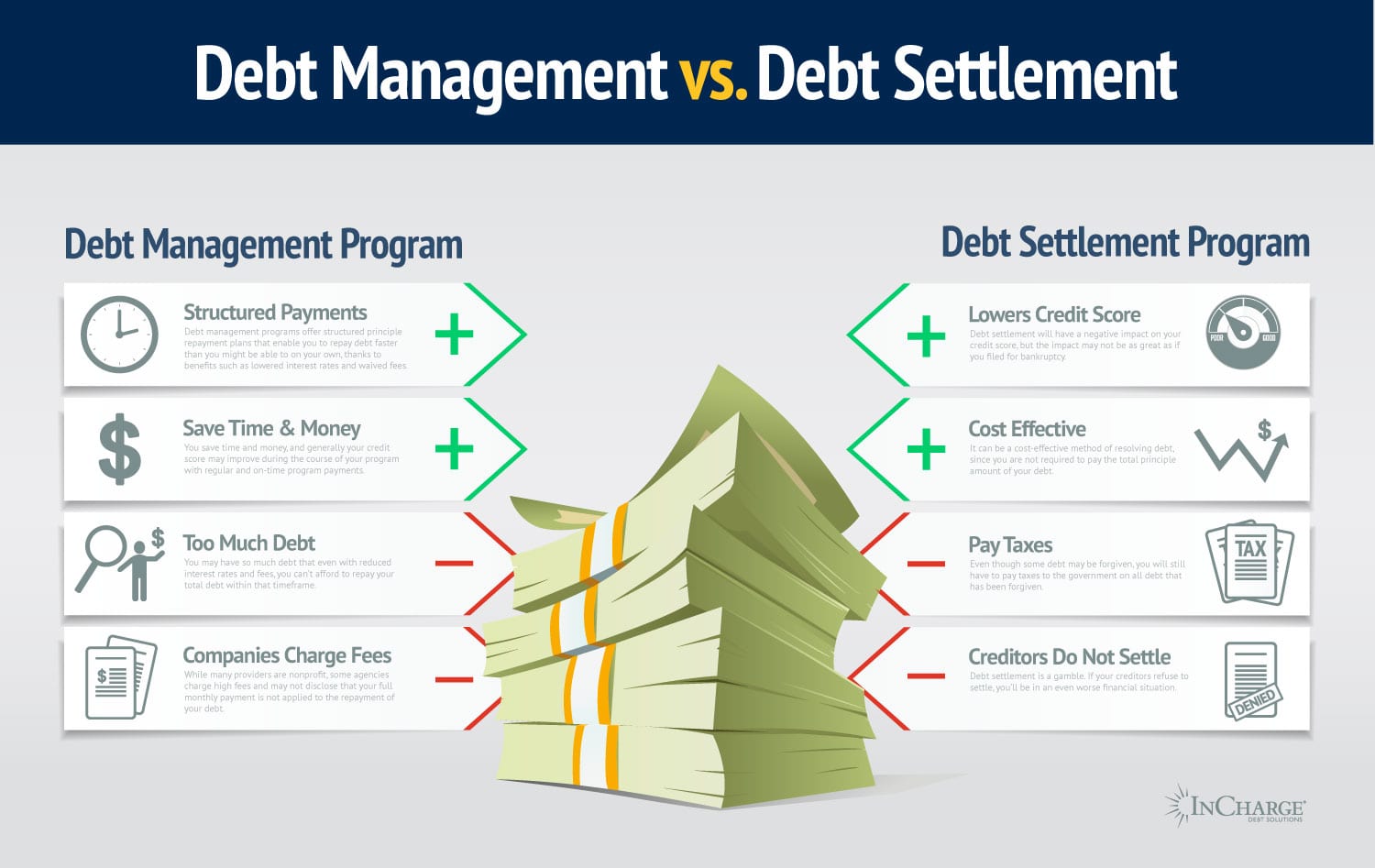Comprehending the Role of Debt Management Plan Services in Financial Planning
Comprehending the Role of Debt Management Plan Services in Financial Planning
Blog Article
Recognizing the Value of a Well-Structured Financial Obligation Monitoring Strategy for Financial Stability
In the realm of personal finance, the value of keeping a well-structured debt administration strategy can not be understated. It offers as a keystone for achieving and sustaining financial security, yet its relevance commonly remains ignored or underestimated. As people browse the complexities of managing their monetary commitments, a tactical strategy to debt monitoring can pave the means for an extra prosperous and protected future. By comprehending the basic principles and functional strategies behind reliable financial debt administration, people can open the course to not only reducing debt worries but also cultivating a solid foundation for long-lasting monetary wellness.
The Effect of Debt on Financial Stability

Moreover, the effect of financial debt on economic stability extends past simply the financial facets. It can also affect psychological health, connections, and general well-being. The stress and anxiety linked with frustrating financial debt can impede decision-making abilities and pressure professional and individual connections.
As a result, it is critical for companies and people to very carefully manage their financial obligation degrees, making sure that it straightens with their economic goals and abilities. By comprehending the ramifications of debt on financial security and applying efficient financial debt monitoring approaches, individuals and organizations can protect a much more thriving and steady monetary future.
Components of an Effective Financial Obligation Monitoring Strategy
Offered the essential relevance of preserving financial security in the middle of varying debt degrees, comprehending the important components of a reliable debt monitoring plan is critical for people and organizations alike. A comprehensive financial obligation management strategy typically consists of a detailed evaluation of current financial debts, income, and expenditures to establish a clear monetary picture. In addition, establishing an emergency fund to prevent accumulating more financial debt in case of unforeseen expenses is a prudent part of an all-around financial obligation management strategy.
Advantages of Implementing a Financial Obligation Repayment Method

Tips for Creating a Lasting Budget
Building a strong financial structure starts with grasping the art of developing a sustainable budget that lines up with your long-lasting economic objectives and complements your financial obligation settlement strategy. To create a budget that advertises monetary stability, begin by tracking your earnings and expenditures to understand your financial patterns. Classify your expenses into crucial (such as real estate, energies, and grocery stores) and non-essential (like eating out and entertainment) to focus on where your money goes. Establish realistic costs limits for each group, ensuring that your crucial expenses are covered while leaving space for cost savings and financial obligation payments.
Remember to allocate a portion of your budget plan towards developing an emergency fund to cover unpredicted financial difficulties. By following these pointers and staying disciplined in your budgeting method, you can develop a lasting monetary strategy that sustains your long-lasting goals and helps you accomplish lasting monetary stability.
Tracking and Readjusting Your Financial Debt Management Strategy
Regularly examining and adjusting your financial debt monitoring plan is crucial for maintaining financial development and accomplishing financial debt repayment goals. Checking your debt monitoring strategy includes maintaining track of your earnings, expenditures, and debt balances Visit Website to ensure that you are remaining on track with your financial goals (debt management plan services). By consistently assessing your strategy, you can recognize any areas that may require change, such as reducing on unnecessary expenses or increasing your debt repayments
Adjusting your financial debt monitoring strategy may be required as your financial situation evolves. Life adjustments, such as a job loss or unexpected costs, may require you to reassess your plan and make modifications to suit these new scenarios. In addition, as you pay down your financial obligation, you might find that you have extra funds readily available to assign towards financial debt repayment or financial savings.

Final Thought
In final thought, a well-structured debt monitoring plan is crucial for keeping monetary stability. By comprehending the impact of debt, executing a repayment approach, developing a lasting spending plan, and tracking and readjusting the plan as needed, individuals can take control of their monetary situation and job in the direction of a debt-free future. It is vital to prioritize economic health and make notified choices to secure a thriving and steady financial future.
By recognizing the basic principles and functional approaches behind efficient financial debt management, individuals can open Click Here the course to not only decreasing financial obligation worries but also growing a strong structure for lasting economic wellness.
Provided the crucial value of maintaining economic security amidst differing financial obligation degrees, recognizing the important elements of an efficient debt management plan is vital for companies and people alike. A thorough financial debt monitoring strategy commonly includes a complete evaluation of current financial obligations, earnings, and costs to establish a clear financial picture - debt management plan services.On a regular basis examining and adjusting your debt management strategy is crucial for maintaining economic development and achieving financial obligation repayment goals. Checking your financial obligation monitoring strategy includes keeping track of your income, expenditures, and financial debt equilibriums to make certain that you are staying on track with your monetary objectives
Report this page